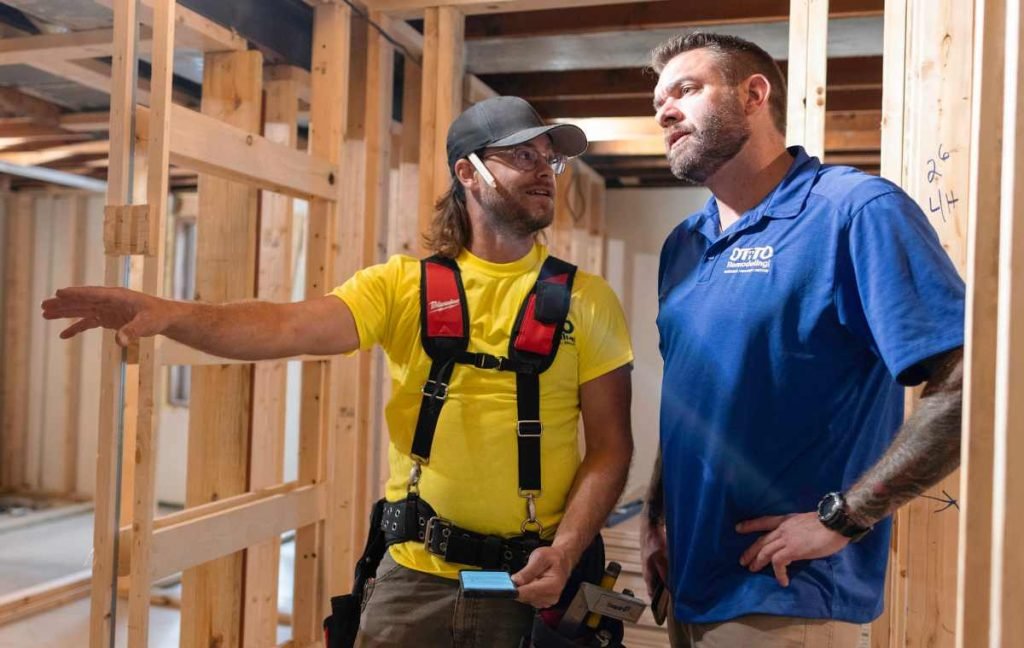Embarking on a construction project necessitates careful deliberation when selecting a professional general contractor. The success of any building endeavor hinges on the competence, reliability, and transparency of the chosen contractor. In this exploration of key considerations, we delve into crucial aspects such as qualifications, experience, insurance coverage, and transparent pricing structures. Effective communication, collaboration, and adherence to safety protocols emerge as paramount, while a detailed review of contract terms adds a layer of legal assurance. Subcontractor management, often overlooked, plays a pivotal role. Unraveling the intricacies of these factors ensures a well-informed decision, setting the stage for a seamless and successful construction journey. Navigating the complexities of hiring a general contractor involves a comprehensive understanding of their past projects, client references, and subcontractor relationships. As the cornerstone of this exploration, each facet contributes to the overarching goal of a streamlined construction process. With a focus on A.C.E. Plumbing and Home Services LLC, their commitment to expertise, transparency, and safety stands out as a testament to their dedication to construction excellence. As we delve into these key considerations, it becomes evident that a meticulous approach to contractor selection not only mitigates risks but also establishes a foundation for a collaborative, secure, and successful construction project.
Building Success: Essential Considerations When Hiring a Professional General Contractor
As you embark on your construction journey, trust A.C.E. Plumbing and Home Services LLC to navigate the complexities with expertise, transparency, and a commitment to excellence.

Qualifications and Licensing: Ensuring Regulatory Compliance
When hiring a professional general contractor, it is crucial to begin by verifying their qualifications and licensing to ensure compliance with regulatory standards. Qualifications may include educational background, professional certifications, and membership in relevant industry associations. Licensing requirements vary by location, so it’s essential to confirm that the contractor holds the necessary permits to operate in the jurisdiction where the project is located. This step ensures that the contractor possesses the fundamental knowledge and legal standing to perform construction work safely and effectively.
Experience Matters: Assessing Past Projects and Expertise
A key consideration when hiring a general contractor is their experience and expertise in similar projects. Requesting a portfolio of past projects allows you to assess the contractor’s capability and the diversity of their work. Look for projects that align with the scope and scale of your own, as this indicates a familiarity with the challenges and requirements specific to your type of construction. Additionally, inquire about the contractor’s experience with any specialized aspects of your project. A seasoned contractor brings not only technical skills but also insights gained from overcoming various challenges in the field, contributing to a smoother and more successful construction process.
Insurance Coverage: Protecting Your Project and Investment
Verifying that the general contractor has comprehensive insurance coverage is critical to protecting your project and investment. Adequate insurance should include liability insurance, which safeguards against property damage and injuries that may occur during construction. Additionally, workers’ compensation insurance is essential to cover injuries to workers on the job. By confirming the existence of these policies, you ensure that any unforeseen accidents or damages won’t become financial burdens for you. A contractor with proper insurance demonstrates a commitment to professionalism and responsibility, providing you with peace of mind throughout the construction process.
Transparent Pricing: Avoiding Hidden Costs and Budget Overruns
Establishing a clear understanding of the pricing structure is vital to avoid hidden costs and budget overruns. A reputable general contractor should provide a detailed estimate that outlines all expected costs, from labor and materials to permits and miscellaneous expenses. Transparency in pricing allows for informed decision-making and prevents unpleasant surprises that could strain the project budget. Clearly defining the payment schedule and any potential extra charges for changes or unforeseen circumstances helps maintain a healthy working relationship based on trust and accountability.
References and Reviews: Seeking Feedback from Previous Clients
Before finalizing your decision, it’s essential to seek feedback from previous clients of the general contractor. Ask for references and take the time to contact them, inquiring about their experiences working with the contractor. Additionally, explore online reviews and testimonials to gain a broader perspective on the contractor’s reputation. Positive feedback and satisfied clients are indicators of a reliable and competent professional. Conversely, red flags in reviews or references should prompt further investigation and consideration before making a commitment. This step is crucial for understanding the contractor’s communication style, work ethic, and overall reliability.
Project Timeline: Establishing Realistic Deadlines
Defining and agreeing upon a realistic project timeline is essential to ensure that expectations align between you and the general contractor. During the hiring process, discuss the anticipated start and completion dates for the project, taking into account any potential delays or challenges that may arise. A clear timeline helps in planning and coordination, minimizing the risk of project delays and ensuring that the construction process progresses smoothly. Regular communication on project milestones and potential adjustments to the schedule further fosters a collaborative and proactive approach.
Communication and Collaboration: Ensuring Effective Interaction
Effective communication and collaboration are cornerstones of a successful construction project. Assess the general contractor’s communication style during initial interactions. A contractor who communicates clearly, promptly, and openly fosters a positive working relationship. Collaboration is equally crucial; a contractor should be willing to work closely with you, architects, designers, and other stakeholders. This collaborative approach ensures that everyone involved is on the same page, leading to better decision-making and problem-solving throughout the construction process.
Safety Protocols: Prioritizing a Secure Work Environment
Prioritizing safety on the construction site is a fundamental aspect of any construction project. Inquire about the general contractor’s safety protocols and measures to create a secure work environment. A commitment to safety not only protects the well-being of workers but also contributes to the overall success of the project by minimizing accidents and disruptions. A reputable contractor should adhere to industry safety standards, provide proper training to workers, and have protocols in place for handling emergencies. Prioritizing safety underscores the contractor’s professionalism and responsibility, creating a more secure and productive work environment.
Subcontractor Management: Assessing the Extended Project Team
General contractors often work with subcontractors to execute various aspects of a project. Inquire about how the contractor selects, manages, and oversees subcontractors. A skilled contractor should have a network of reliable subcontractors with proven expertise in their respective fields. Understanding the subcontractor management process ensures that each component of the project is in capable hands. Additionally, it helps prevent potential issues related to subcontractor performance, ensuring a cohesive and well-coordinated construction process.

Contract Terms and Conditions: Reviewing Legal Agreements
Before finalizing any agreement, thoroughly review the contract terms and conditions. Pay close attention to payment schedules, milestones, and any contingencies outlined in the contract. Clarify the dispute resolution process and ensure that the contract aligns with your expectations and legal requirements. Clear and comprehensive contract terms set the foundation for a successful working relationship, providing a roadmap for the project’s execution and minimizing the risk of misunderstandings or disputes. If any aspects of the contract are unclear, seek legal advice to ensure that your interests are adequately protected throughout the construction process.
FAQ’S
1. How do I check a general contractor’s qualifications and licensing?
Verify the contractor’s educational background, certifications, and memberships. Confirm they hold the necessary licenses required in your project’s jurisdiction.
2. Why is insurance coverage important when hiring a general contractor?
Insurance protects against property damage and injuries during construction. Ensure they have liability and workers’ compensation insurance to avoid potential financial burdens.
3. What should be included in a transparent pricing structure?
A transparent pricing structure should detail all anticipated costs, including labor, materials, permits, and any potential extra charges.
4. How can I assess a general contractor’s communication style?
Evaluate their responsiveness and clarity during initial interactions. Effective communication is vital for successful collaboration throughout the project.
5. Why is subcontractor management crucial when hiring a general contractor?
Assess how the contractor selects, manages, and oversees subcontractors. A well-managed subcontractor network ensures expertise in various project aspects, contributing to a cohesive construction process.
Conclusion
In conclusion, selecting a professional general contractor requires meticulous consideration of qualifications, experience, and regulatory compliance. Ensuring comprehensive insurance coverage safeguards against unexpected liabilities, and transparent pricing structures prevent budgetary surprises. Effective communication and collaboration, coupled with a realistic project timeline, are crucial for a successful partnership. Safety protocols underscore professionalism, and a thorough review of contract terms ensures a clear roadmap for project execution. Subcontractor management adds another layer of complexity, demanding scrutiny of the extended project team. By attentively addressing these considerations, stakeholders pave the way for a smooth, secure, and successful construction project with a qualified and reputable general contractor at the helm. Moreover, by delving into a contractor’s past projects and client references, one gains insights into their expertise and reliability. This due diligence extends to assessing a contractor’s ability to manage subcontractors effectively, ensuring a well-coordinated effort. Recognizing the importance of these considerations, it becomes evident that the success of a construction project hinges on the careful selection of a general contractor. Whether it’s navigating legal agreements, fostering open communication, or prioritizing safety, each aspect plays a pivotal role in the project’s outcome. Ultimately, an informed and thorough approach to hiring a professional general contractor lays the foundation for a successful, on-budget, and on-schedule construction endeavor, minimizing risks and maximizing project success.
